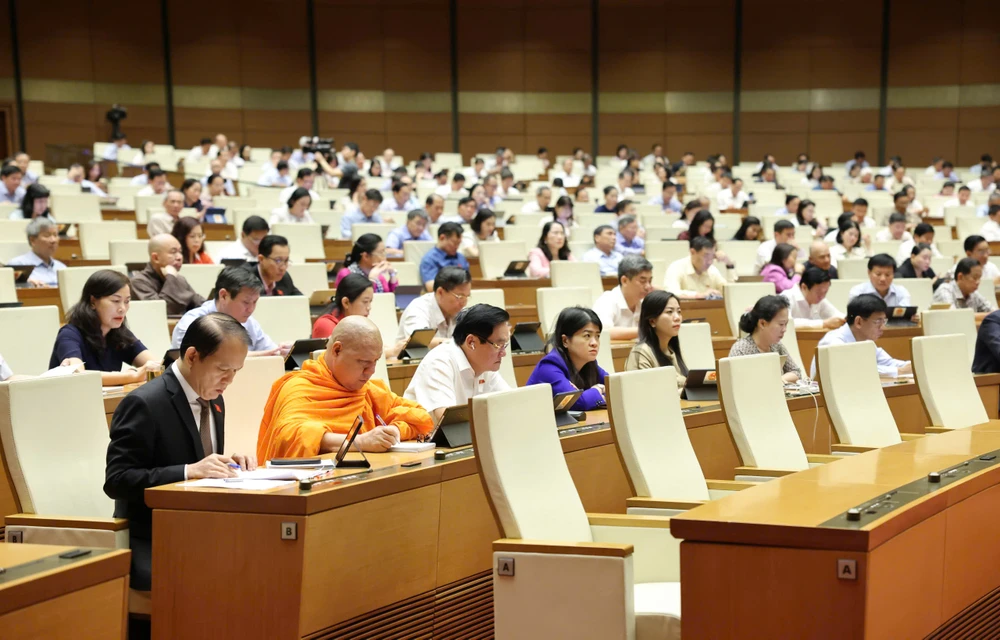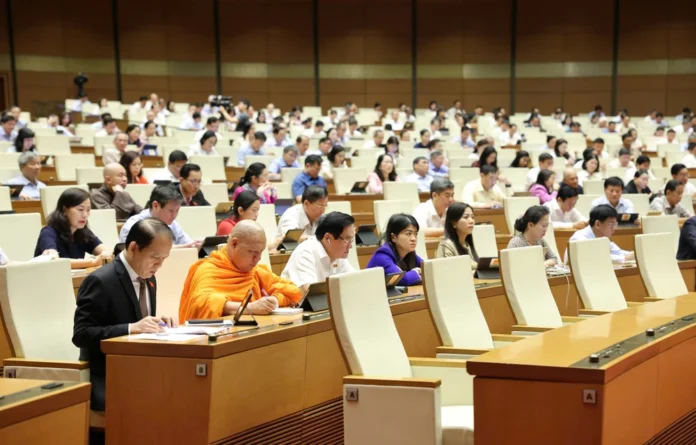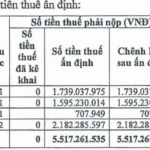National Assembly Continues Discussion on Amendments to the Law on Enterprise Income Tax
On the morning of May 12th, the National Assembly continued its 9th session by reviewing the report presented by the National Assembly Standing Committee (NASC) regarding the refinement and completion of the draft Law on Enterprise Income Tax (EIT) amendments.
According to the draft law, the government proposes to add regulations permitting enterprises to deduct donations made for technology development, innovation, and digital transformation from their taxable income calculations. Simultaneously, the recipient enterprises will be exempt from taxes on this income, regardless of whether the donations originate from independent or affiliated enterprises.
However, some concerns have been raised as expenses for technology development, innovation, and digital transformation can be substantial, with a broad scope, and there is currently a lack of specific legal regulations. Market valuation in these areas is also challenging to implement.
As a result, there are risks of profit shifting, transfer pricing, and tax evasion when the donating and recipient enterprises are affiliated. These issues have not been thoroughly analyzed or impact-assessed, warranting cautious consideration.

The NASC recommends that the National Assembly consider adopting the government’s proposal to exempt all donation-related income from EIT. However, they also request that the government enact the necessary regulations and take responsibility for their implementation, ensuring measures to prevent transfer pricing and profit shifting between affiliated enterprises and averting policy exploitation.
During the implementation process, the government is responsible for closely monitoring and evaluating the impact of these policies on the EIT obligations and budget contributions of the affected enterprises. This will enable timely reporting to the National Assembly and allow for adjustments if the impact is significant.
It is imperative for the government to enact the necessary regulations and take responsibility for their implementation, ensuring measures to prevent transfer pricing and profit shifting between affiliated enterprises while preventing policy exploitation.
Similarly, regarding the provision permitting enterprises to offset profits from real estate business and project transfer activities with losses from other business activities when determining taxable income, Mr. Phan Van Mai, Chairman of the Committee for Economic and Financial Affairs, stated that the current regulations do not allow for such offsets to ensure budget contributions from substantial profits in these sectors.
The NASC acknowledged that real estate businesses tend to diversify their operations. The draft law presented at the 8th session amended this regulation to facilitate and resolve obstacles for real estate businesses, ensuring fairness with enterprises in other sectors and contributing to economic growth. The reported impact on revenue was deemed insignificant.
The NASC suggested that the practical impact of this policy be further assessed once implemented to eliminate the risk of policy exploitation.
“In the spirit of supporting the government in facilitating enterprises and promoting GDP growth to reach 8%, the NASC reports to the National Assembly our agreement with the government’s proposed amendments. However, we request that the government take responsibility for implementing these measures effectively, preventing any exploitation of the policies,” emphasized Mr. Phan Van Mai.
Another notable aspect is the tax rates applicable to small enterprises. The draft law proposes preferential tax rates (15%, 17%) for enterprises with a small scale of operations. Along with enjoying these preferential rates, small enterprises that meet the conditions for tax incentives based on geographical location and industry will also be eligible for additional incentives as per the draft law’s provisions, with higher levels of incentives.
However, the NASC observed that the Law on Small and Medium Enterprise Support employs numerous criteria to determine the enterprise type and categorizes them based on their field of activity. According to these criteria, nearly 94% of current enterprises are considered small-scale. Utilizing these criteria to identify beneficiaries of tax incentives would result in widespread incentives with reduced effectiveness.
The National Assembly body proposes that the draft law solely employs the criterion of revenue to ensure simplicity, convenience, and alignment with tax administration practices and international norms.
Do Bonuses for the Vietnamese National Football Team Have to Pay Personal Income Tax?
At a press conference held by the Ministry of Finance on January 7, Deputy Director of the General Department of Taxation, Mai Son, announced that the monetary bonuses and commemorative medals awarded to the Vietnamese football players following their victory in the 2024 ASEAN Cup will be exempt from personal income tax.
The 2024 Total Budget Revenue Surpasses the Estimate by 17.4%
The year 2024 witnessed the relentless endeavors of the Ministry of Finance in executing the nation’s financial-budgetary tasks. With agile and assertive fiscal policies, budgetary revenue and expenditure achieved remarkable outcomes, significantly contributing to macroeconomic stability, inflation control, and social welfare assurance.
Farmers and Agricultural Businesses Yearn to Pay VAT
The upcoming agenda for the National Assembly includes the discussion and potential passage of the Value-Added Tax Law (amended) on November 26th. A highly debated topic among the public is the government’s proposal to shift fertilizers, agricultural machinery, and fishing vessels from tax-exempt to a 5% tax-liable status.













































